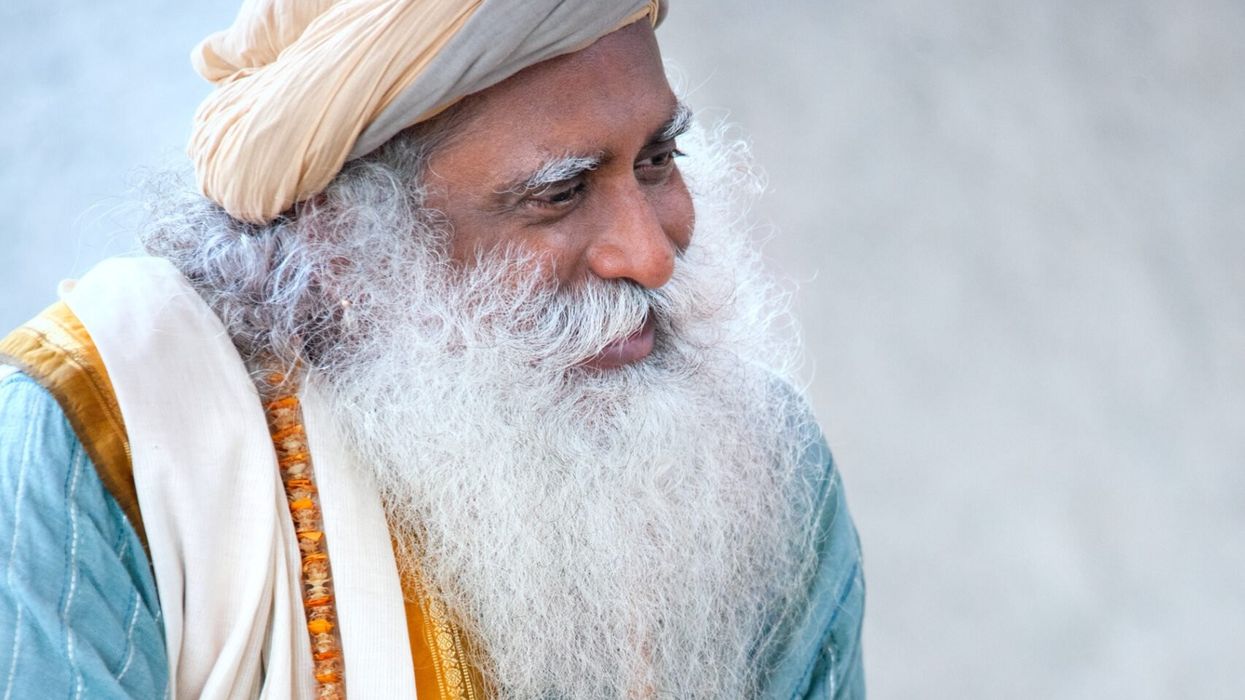THERE is a lot of talk about “detachment” these days, essentially because there is a fear of involvement with life.
Actually, the fear is not about involvement; the fear is about entanglement. Because people do not know the distinction between involvement and entanglement, they talk about detachment. If you know how to be absolutely involved with life and not be entangled, you would not be talking about detachment. It is the fear of entanglement that has given birth to this entire philosophy of detachment.
Entanglement is not because there is something wrong with life. It happens because one is handling life improperly. If there was no involvement with life, one would not know life. That means when there is talk about detachment, people are talking about avoiding life. Why does one want to exist here and avoid life?
There are too many people on the planet who are not fully alive. Partially alive people are a crime against life. You have come here to live and experience life. Your life should happen in the most exuberant way possible, but the fear of entanglement makes one weave all kinds of philosophies to avoid life.
If one’s involvement is absolute and total with everything one is in touch with right now, one will see there is no entanglement. The problem is that people choose to be involved only with a particular person and want to ignore the rest of life around them, so they get entangled.
If people are involved with everything they are in touch with right now – the very air that they breathe, the atmosphere around them and life around them – then there is no question of entanglement. Entanglement happens because of discriminatory involvement.
Only if people show involvement with everything around thems will they know life. Even if one is in heaven, without involvement, it does not mean anything. Whether it is family, work, or the world, people will experience them only if they are deeply involved with them.
Detachment is a philosophy created by people who have completely misunderstood life. Because of such philosophies, there is a huge aversion to anything spiritual in the world. Right now, most of the population has come to this conclusion: spirituality is for those who are not interested in life.
They assume that if you are spiritual, you should not eat properly, you should not dress properly, and you should not live properly. You must be suffocated, or you must look suffocated, at least. If you smile, laugh and enjoy your life, then you are not spiritual. If you have a goat-like face that has never smiled, then you are spiritual – this is what most people think.
Being spiritual really means your interest in life has gone so deep that you want to know everything about it. You want to know not just the physical dimension of life, you want to know all about life. For a person who is trying to avoid life, there is no chance to be spiritual because spirituality needs absolute, total involvement with everything. Otherwise, there is no possibility.
It is not the life process, but the ignorance with which people are handling life that entangles them. They get identified with things that they are not, so they get entangled. They have been identified with a million things that they are not, starting with their physical body, their thoughts, opinions, ideas and emotions, their clothes, jewellery, family and work.
Once they get identified, people’s whole lives get distorted. If people do not have a proper perspective of who they are, then they get entangled. If entanglement were to not happen, people must maintain awareness as to what they are and what they are not.
If this distinction is maintained constantly, there will be no question of entanglement.
Ranked among the 50 most influential people in India, Sadhguru is a yogi, mystic, visionary and bestselling author. He was honoured with the Padma Vibhushan, India’s highest civilian award, in 2017, for exceptional and distinguished service.




